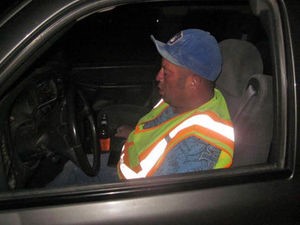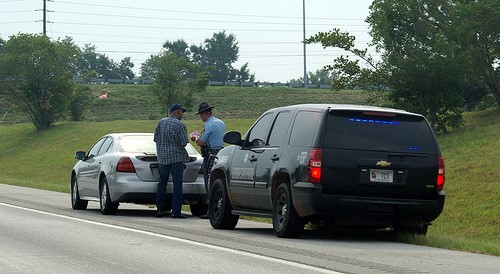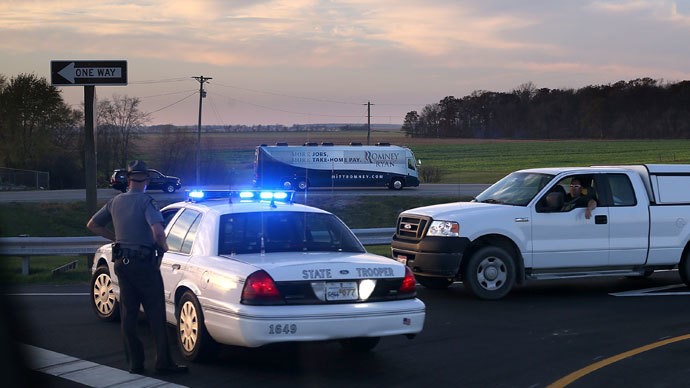Three people die because of alcohol-related highway accidents every two hours. (Source: Bureau of Transportation Statistics) This is the reason why authorities take probable DUI/DWI cases seriously. Here are some instances where most DUI/DWI arrests usually happen:
-
-
Sobriety checkpoints
Sobriety checkpoints are allowed in some states in the US. It was ruled by the Supreme Court in the case of Michigan vs. Sitz (1990) that preventing accidents caused by drunk drivers is enough reason to conduct sobriety checkpoints. (Source: Criminal Procedure by Neil C. Bond)
Of course, the main objective of this type of checkpoint is to check if the motor vehicle drivers in a certain area are sober without individualized suspicion to reduce DUI/DWI-related fatalities. (Source: The Police Chief) No individual suspicion means all vehicles that will pass through the checkpoint will be stopped and checked. Several DUI/DWI arrests happened in sobriety checkpoints. -
Parking lots/Driveways

Image Source: Eastern Arizona Courier
There are several situations where you can get arrested for DUI even when you are not driving. These situations usually happen in parking lots and driveways. If an officer has reasonable suspicion that a driver is intoxicated even if the motor vehicle is not moving, the driver can be charged with DUI/DWI because he/she has actual physical control of the vehicle. (Source: NRS 484C.110)
Actual physical control means that a driver can operate the vehicle any time while being under the influence. (Source: North Dakota Highway Patrol) -
Traffic stops

Image source: Flickriver
Traffic stops are the same with being pulled over by an officer. It is also a form of detention. A police officer would ask a driver to pull over if the driver committed a traffic violation such as over speeding, swerving, beating the red light, etc. (Source: Law Collective) These violations are legitimate reasons for a pull over because they could also be the results of impaired driving. If the driver showed signs of being impaired or having a bottle of alcohol in the car, it could result to an actual DUI/DWI charge.
(Embed: https://www.youtube.com/watch?v=DvAEJ4kPdh0)This is different from a sobriety checkpoint because police officers only pull over vehicles when they have reasonable suspicion. Reasonable suspicion or probable cause is usually debated because of certain factors such as the rights of a driver (Watch the video above).
-
Random Checkpoints

Image source: RT USA
Aside from sobriety checkpoints, there are also random checkpoints for driver’s licence, registration, seatbelts, insurance, safety inspections, citizenship, hunting, etc. The purpose of these checkpoints do not focus on sobriety of drivers. However, since drivers will still be checked, a drunk driver may be arrested especially if he/she shows sign of being drunk or impaired (e.g. bloodshot eyes, alcohol smell, slurred speech, etc.)
These checkpoints are used to enforce various laws in a state or country. Random checkpoints vary in different states. (Source: The Independent Institute)These are just a few of the many instances where drunk drivers usually get arrested for DUI/DWI. The best way to avoid getting arrested is not to drink if you are going to drive.
Other related topics:
DUI Investigation And Arrest
-

